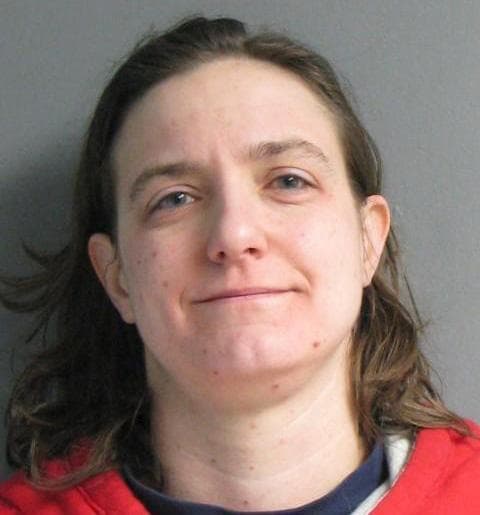Advertisement
After Scandals, Officials Say Mass. Drug Labs Have Improved — But Concerns Linger
Defense attorneys in Massachusetts are still waiting to find out how the fiascos at state drug labs over the last few years will affect thousands of criminal cases. Going forward, state officials say the drug labs are in much better shape, but not everyone is 100 percent convinced.
In 2012, chemist Annie Dookhan was arrested for making up evidence at a state crime lab in Jamaica Plain — one of two, run by the Department of Public Health, that tested suspected illegal drugs seized by police.

In response, the Massachusetts State Police took over the labs. The following year, another chemist, Sonja Farak, was arrested at a second lab in Amherst for consuming drug samples she was supposed to test. She did this for years.
“I have 30 years in law enforcement, and I’m not surprised by a lot of things,” said Robert Irwin of the Massachusetts State Police, who was on the team that investigated both cases. “But I will say, the amount of damage that one person can do to the criminal justice system, it was terrible.”
In May, the state attorney general's office released a report detailing the extent of Farak’s drug abuse. It found she was intoxicated almost continuously on the job and while testifying against drug defendants. It also described the lax and haphazard security, supervision and quality control at the Amherst forensic lab, which is now closed.
Overhauling Practices At The State's Drug Labs
Today, the only two state drug labs are in Sudbury and Springfield. Attorney General Maura Healey told WGBH she’s not worried about their integrity.
“[The lab] is now both nationally accredited and internationally accredited, and we feel confident that the right systems and personnel are in place,” Healey said.
Since the state police took over, the budget for all forensic labs across Massachusetts has increased by $5 million, or about 25 percent.
State crime lab director Kristen Sullivan said the drug-testing staff has doubled to 23, including some in training. She said drugs are now locked up in a central storage bin whenever chemists are not testing them, there are video cameras keeping watch and security is stringent.
“Analysts may not work in the lab alone. They must be accompanied by another analyst or a supervisor,” said Sullivan. “That’s something we have changed in the last couple years.”
Advertisement
Northampton defense attorney Luke Ryan has represented clients whose cases were affected by the lab work now in question. He said he believes the state police are putting more resources into drug testing, but it would be “professionally negligent” to assume all problems are fixed.
“After the Annie Dookhan scandal broke, they had legislative hearings, they brought in people to testify,” Ryan said. “And all of these people expressed confidence that something like this could never happen again, that somebody engaged in this misconduct could never do this in any sort of long-term way.”
But then they learned Farak was stealing drugs and working while high.

“So I think we all have reason, particularly those of us who work defending people accused of drug crimes, to be skeptical about the quality of the forensic work that’s being done,” Ryan said.
Ryan said next time he’s defending someone on drug charges, he plans to grill the state chemists who give testimony on whether a seized substance is in fact an illegal drug. For instance, are they running a neutral substance -- a blank -- through their equipment to clean it off between tests?
“Or are they doing what they did in Amherst where they’ll run a standard and then a blank and then 30 samples in a row where you’re introducing this high likelihood of carryover?” Ryan said. “I mean, those are the kinds of practices that we now know are dangerous in terms of labs producing reliable results.”
Sullivan, the state drug lab director, said the police-run facilities are meticulous with samples, including what are called “official standards.” Those are pure drug samples bought from a factory so that chemists can compare them to substances seized by police.
In Amherst, investigators found that not only did Farak consume those drug samples in large quantity, but the lab didn’t have the budget to keep a robust supply on hand. So staff would sometimes make their own standards by skimming off police evidence.
“That does not happen,” Sullivan said. “We do have things in place that would prevent that. All our standards are purchased, they’re inventoried and access to these are limited and monitored.”
Sullivan said she’s now pushing for an expanded drug-screening policy. Employees already have to prove they’re clean before they’re hired. Officials are now negotiating with the union; they want the right to test employees randomly or for cause.
This segment aired on May 23, 2016.